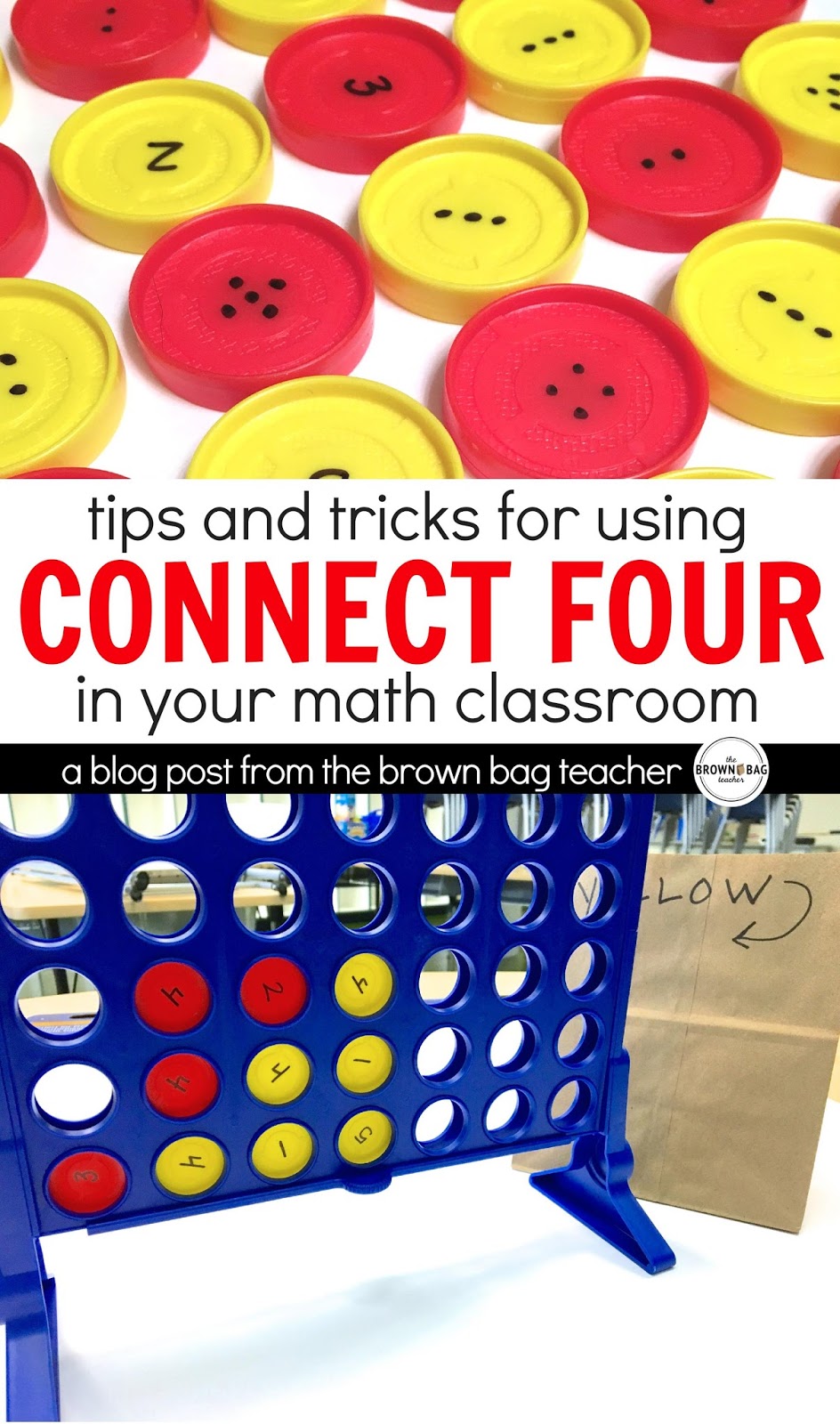Teaching 1st grade, I feel like I am always looking for simple centers that are easy to differentiate. Using a Guided Math model for instruction, we use A LOT of centers every school year. I love pulling board games during math centers because the materials are always really durable and my students immediately consider them fun! We’ve started using Connect Four during math centers so I wanted to share the details, visual directions, and affiliate links for easy set-up!
Getting the Best Deal!
Walmart had Connect 4 on sale for $4.50 when I purchased my game, so it was a great deal. I’ve also heard that Dollar General and Dollar Tree occasionally carry a smaller version of the game. You might check your local Goodwill or Thrift Store. If all of these fail, you can also purchase it on Amazon…although it is a little pricier.
Preparing Your Game
In each board game, there are 22 yellow pieces and 22 red pieces. Since my students are working on finding a specific sum (10, 15, or 20) I decided to number the counters. I wrote 1s on 6 pieces, 2s on 4 pieces, 3s on 4 pieces, 4s on 4 pieces, and 5s on 4 pieces. Then, I wrote the same numbers on both colors (red and yellow) so it would be fair for both players.
If you are planning on using the chips for more than one subject or at more than one point in the year, you’ll want to purchase yard sale stickers to add to the counters. Then, the stickers can be written on and removed later.
I also attached these visual directions to the front of the box. You can grab them here for free.
How Does it Work?
When we play, I ask students to put the counters in a brown bag, so there is an element of luck and strategy involved. If students were able to look at the pieces as they chose, the game would be over quickly. When they pull them from the bag, they have to decide when and where to use the chip. As students are placing chips, they can add the subitizing dots or they can keep a running total on a white board.
Differentiating for Every Learner
Working our way toward the Common Core fluency standards, each of my groups is working on a different sum. By the spring (when I first introduce this game) my green group (approaching grade level) works to make 10, my yellow group (grade level) works to make 15, and my blue group (above grade level) works to make 20. When they think they have their desired sum, students must ‘prove’ their work to a partner. The partner is responsible for checking the work. The next game, the winner goes second.
Other Uses for Connect 4
While we are using Connect 4 for sums of 10, 15, and 20, there are SO many other ways and ideas for using it. Additionally, it’s an awesome resource for both math and reading centers!
- creating CVC or CVCe words
- making a whole out of fractions
- using decimals to add to a whole/one
- connecting shapes with similar characteristics (number of sides, type of angles, etc.)
- add task cards to the board game box, students can’t pull a counter until they correctly answer the question on the card (This is the most versatile way as you don’t have to write on the counters and you just need to add a set of task cards that works for your students!)
What are your favorite math boards games in the classroom? Have you ever used Connect 4 for learning? If so, how did you use it? I’d love to hear your ideas!
Get Free Teaching Resources!
Join me for weekly classroom updates and free resources that are just-right for your guided math classroom!




I’m wondering about the numbers you wrote on the pieces… Did you mean that you put 2s on four of them? Otherwise it’s ten 1s and NO 2s.
Oops – yes, I have 6 1s and 4 2s. Thanks so much for catching that!
Do you use total of 22 pieces? I only get total of 18 when I add the numbers you use….thanks
Hi Jill! I do 4 of each number 2-5 and then, 6 1s. 🙂
Thank you for this GREAT idea. I am in the process of making this game and I also only have 18 pieces being used. Can you please update us with the exact numbers to write on the pieces so that they equal 22 pieces. Thank you.
Hi Oscar! I do 4 of each number 2-5 and then, 6 1s. 🙂
I love this idea and would have loved using it when I was in the classroom. I am making some for my teacher friends as we speak! thanks for sharing your brilliance! 🙂 Love first graders too!
Can you explain your thought on using it for decimals? We started that this week…thank you!
Hey Monica! I could see using it where students have to find 4 decimals that add to 1 (whole), or even put 4 equivalent decimals in a row. Hope this helps!
I was just about to use connect 4 to help teach place value and decided to google if anyone was using it for teaching math. These are fantastic ideas. Thanks!